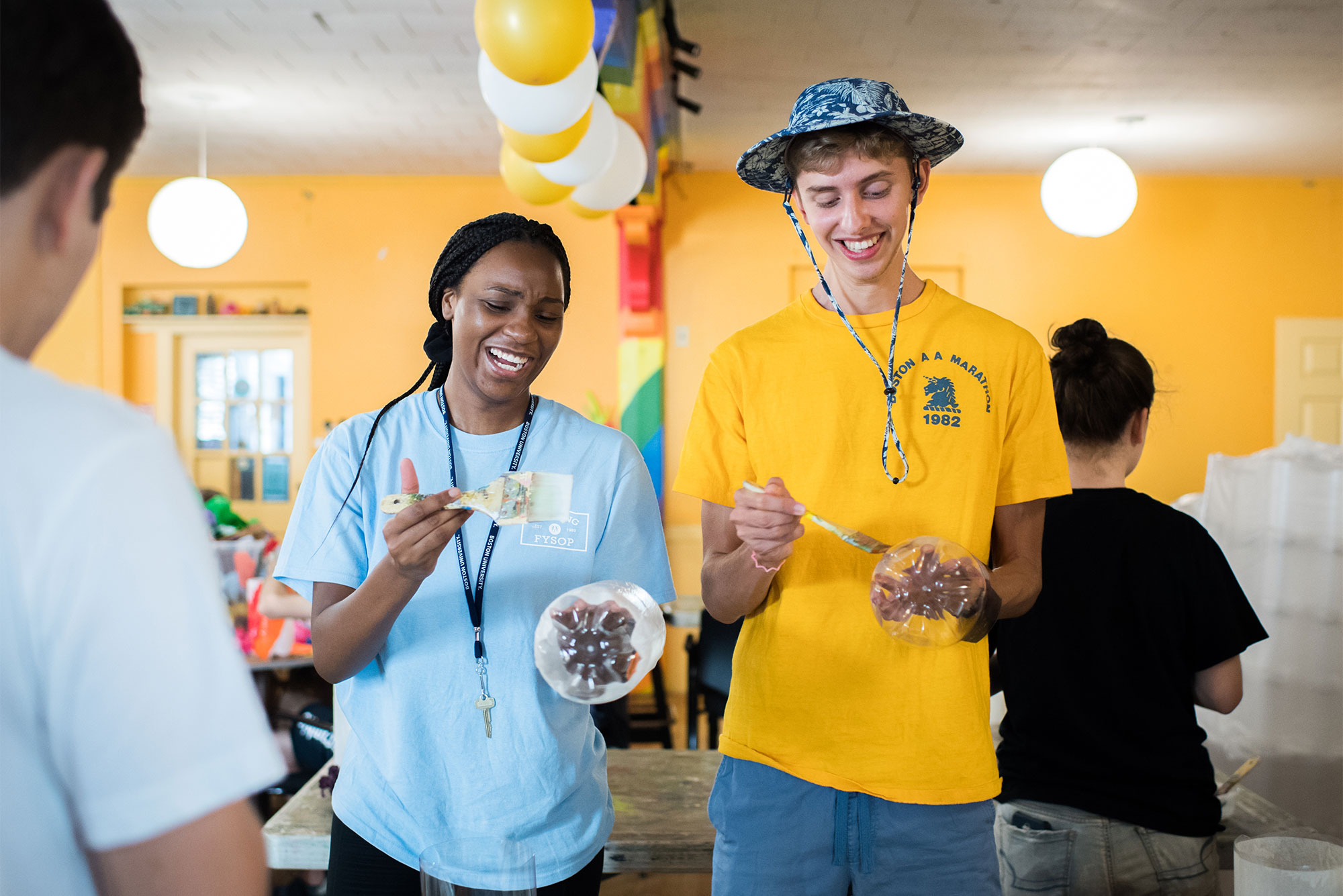Students Gave, Too—Their Way

Sophomores Natalie Heurtelou (CAS) and Riley Lane (COM) volunteer in the First-Year Student Outreach Project (FYSOP) in 2018. Photo by Jackie Ricciardi
Students Gave, Too—Their Way
With limited funds, BU students instead donated more than 1.86 million hours of community service to the campaign
College students are famously cash-strapped, so BU students used another currency when donating to the Campaign for Boston University: their time.
In 2012 they pledged to complete one million hours of community service, and they met that goal in 2016. They then set out to complete another 500,000 hours, bringing their target to 1.5 million hours, which they also surpassed. By the campaign’s end, students had completed 1.86 million hours of community service, both through BU-organized events and independent projects.
The idea for this unconventional donation originated in part with a gift from the student body during the inauguration of Robert A. Brown as BU’s 10th president in 2006. Jonathan Marker (CAS’07), the Student Union president at the time, pledged one hour of community service for each undergraduate student—17,000 hours in total—which the students exceeded by several thousand hours. At the 2012 launch of the campaign, students upped their commitment, clocking their time on the Million Hours website, which kept a running tally.
“This was a way for students to show their dedication to the University, and in turn, the University’s dedication to serving the community,” says Dan Solworth (CAS’06), chief of staff and director of operations in the Dean of Students office, who helped coordinate the effort.
Volunteering changed my perspective entirely.
They volunteered through BU’s Community Service Center (CSC), the First-Year Student Outreach Project (FYSOP), the annual Global Days of Service, and Alternative Service Breaks. They tallied service performed in partnership with any of the University’s fraternities and sororities, religious groups, and clubs. Even independent efforts, like offering time at a soup kitchen over intersession or helping out a frail neighbor back home, counted.
Caroline Kohler (Sargent’19,’21) estimates that she donated about 800 hours during her four undergraduate years. She took on leadership positions at the CSC, such as serving as program manager of FYSOP and the Siblings Program (BU’s arm of Big Brothers Big Sisters), among others. Volunteering, she says, led her to her chosen career path as a registered dietitian, specializing in early pediatrics.
Kohler began volunteering with the CSC’s food justice program as a freshman, where she “met people who were combining nutrition and helping people, and were able to make a career out of it,” she says. “I then went on to volunteer with student food rescue, which made me more aware of social justice issues and how anyone in any career can incorporate social justice into their work. Volunteering changed my perspective entirely.”

Comments & Discussion
Boston University moderates comments to facilitate an informed, substantive, civil conversation. Abusive, profane, self-promotional, misleading, incoherent or off-topic comments will be rejected. Moderators are staffed during regular business hours (EST) and can only accept comments written in English. Statistics or facts must include a citation or a link to the citation.